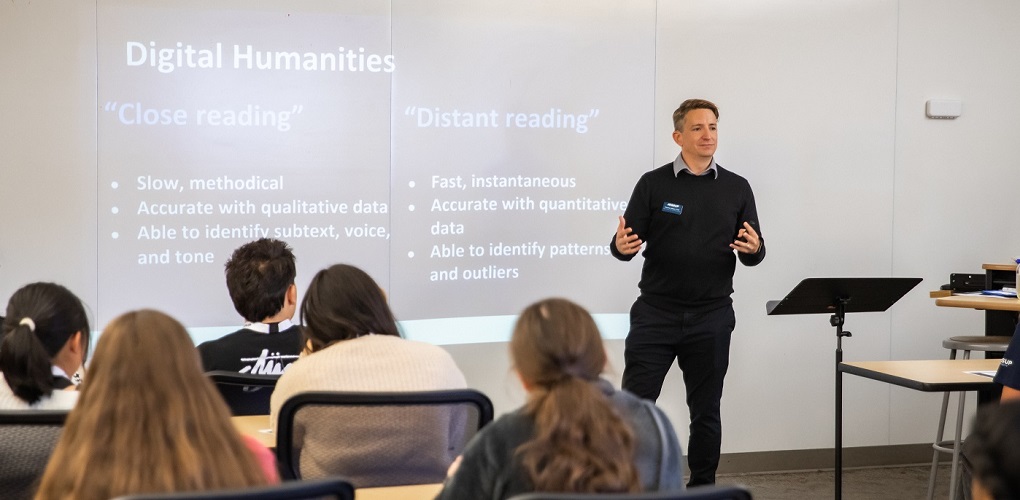
What is Digital Humanities?
One of the first things people ask me when they discover what I do is, “So, what is digital humanities?” Or sometimes, “What are the digital humanities?” (And yes, even the question’s grammar confuses people—is it singular or plural? Honestly, it’s both.)
Here’s the simplest answer:
Digital Humanities is a field that blends the traditional study of English and history with training in today’s most advanced digital tools.
Think of it as classic humanities training, but supercharged for the 21st century.
By now, we all know how much artificial intelligence and digital tech have changed the way we work, study, and even think. Every industry has felt it, and the humanities are no different. Digital Humanities is what happens when English and history meet cutting-edge tech—and the result is a field that’s transformed by these tools but still deeply rooted in what makes the humanities special: curiosity, critical thinking, and storytelling.
The real magic of digital humanities is that it doesn’t force you to choose between the old and the new—it gives you both. Imagine studying Emily Dickinson the traditional way: analyzing her themes, rhythms, and use of language. Now imagine pairing that with tools that let you analyze 1,000 poems. You could use a computer program to analyze all of Dickinson’s work and nearly every other poet of her era, uncovering how they wrote about nature, how their language evolved, or how their perspectives on humanity shifted over time. That’s the kind of work digital humanities makes possible.
At Jessup, we’ve designed our program to give students the best of both worlds.
- If you’re a creative writer, you’ll take workshops on storytelling and novel writing—and you’ll also learn how to write alongside AI in our Writing with AI course.
- If you’re passionate about history, you’ll dive into courses like the American Frontier or Ancient Rome, but you’ll also learn how to use digital tools in Intro to Digital Humanities for archiving and digitizing historical documents.
In the process of completing coursework, gaining internship experience, and working alongside our faculty, you will develop skills in project management, data science, research, generative AI, and written and oral communication.
Digital humanities isn’t about choosing between past and future—it’s about combining them in ways that let you follow your passions while gaining skills that matter in today’s world. So, if you’ve ever wondered how studying English or history could lead to opportunities in tech, education, research, or beyond, digital humanities might just be your perfect fit.
Are you passionate about research, writing, and understanding the breadth of the human experience? Are you a future novelist, educator, librarian, or historian? We’ve got a place for you in Digital Humanities!
Cameron Wilson is Associate Professor and Program Director of Digital Humanities at Jessup University. Ever since his first American literature course in college, he has been fascinated by American literature and its bottomless well of captivating works. His current research focuses on Digital Humanities, Natural Language Processing, and the American short story.
